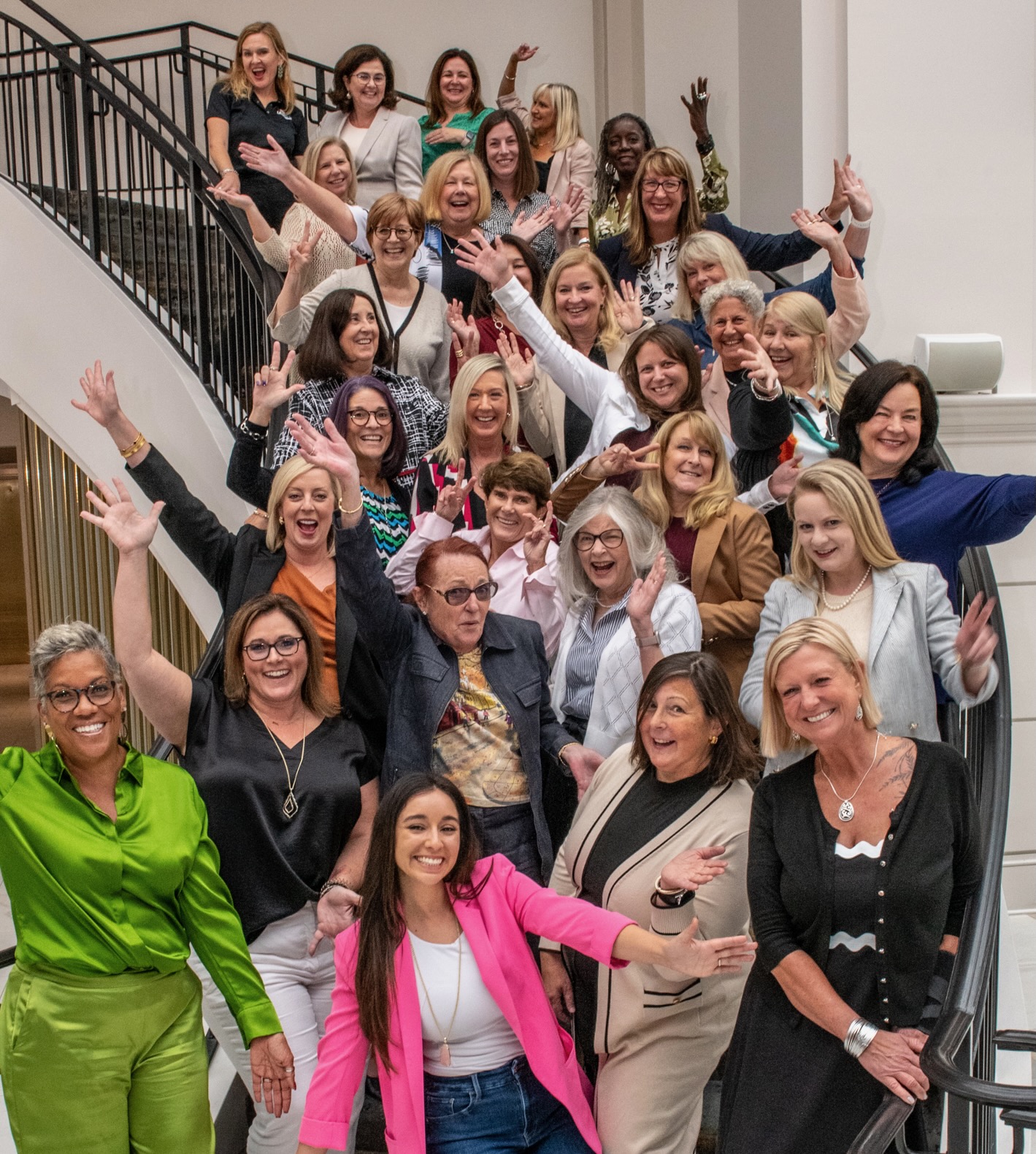Empowering the Next Generation of Female Leaders
As the number of female leaders continue to decline in education, it is crucial to support career pathways for women. Mentorships are a great start.

Tools and ideas to transform education. Sign up below.
You are now subscribed
Your newsletter sign-up was successful
As we see more of our leaders heading toward that “magic retirement number” (age + years of district service), creating pathways for the next generation of education leaders is crucial. This is even more important for more women. In a recent CoSN’s 2025 State of EdTech Leadership Survey, the percentage of female respondents declined to 29%, compared to 37% in the previous year.
Creating a female-focused mentorship program in your school district is a great first step. At the recent LeadHERship Network Conference in Washington, D.C., Dr. Kristin N. Brown, Superintendent of Schools for Lake Dallas ISD, highlighted some statistics that shows mentorship programs have a powerful impact on supporting women in their leadership career pathway, according to a Women in the Workplace (2024) study from LeanIn.Org & McKinsey & Company:
- Women who have mentors tend to report higher wages
- Women with sponsors are 40% more likely to be promoted
- Mentored employees are 43% more likely to report higher engagement in their work
Building Careers In Leadership: Three Models
Brown cited three models that can be used to support women in their career growth:
- Mentor: A “mentor” is someone who offers career guidance, shares their knowledge, provides feedback, and helps with skill-building and reflection. For example, a school principal might meet monthly with a new assistant principal to review leadership challenges and share strategies.
- Sponsor: A “sponsor” takes a more active role by advocating for an individual behind closed doors, opening up opportunities for them, and protecting their reputational risk. An example would be a district superintendent who recommends a rising instructional coach for a state task force and speaks on her behalf in leadership meetings to help her gain visibility.
- Ally: An “ally” is an individual who actively supports others by addressing systemic barriers. This could be an assistant principal who observes that women in leadership are consistently scheduled for evening events that might conflict with family obligations and works to propose a new, rotating schedule to ensure equitable opportunities for all staff.
Modern Mentoring Approaches
Brown shared several modern mentoring methods beyond the traditional one-on-one relationship:
- Peer Circles: These are small, diverse groups of 4-6 individuals who meet regularly to share goals, problem-solve, and reflect. Facilitation rotates among the members to maintain a balanced power dynamic. An example includes four female principals and two district directors who meet monthly as an "Aspiring Superintendents Circle" to support one another's career paths.
- Reverse Mentoring: This approach involves early-career educators mentoring senior leaders on topics such as technology, generational trends, and evolving school culture. A first-year STEM teacher could mentor a veteran assistant superintendent on using AI tools for personalized learning, for instance. (Read more here.)
- Group or Flash Mentoring: These are short, one-time sessions during which an expert leads a focused conversation on a specific skill or topic. Examples include a "Leadership Lunch & Learn" hosted by a "Teacher of the Year," or "Conference Speed Learning Tables" in which female curriculum directors rotate to share expertise.
- Micro-Mentoring: These are highly targeted, short sessions lasting 15-30 minutes, designed for immediate questions or skill sharpening, similar to "office hours." This could be a female superintendent offering virtual slots for aspiring principals to discuss district budgeting or a librarian hosting quick sessions on new learning-management features.
Launching a Mentorship Program
In the “practice what we preach” category, Tech & Learning launched its first mentorship program in September. This free/volunteer program includes regular meetings, activities, networking, and more, all designed to bolster personal growth and learning, as well as the general educational leadership pipeline.
“As one of the few women in edtech leadership in the start of my career, I never had a mentor, so I feel that it's my duty to do this and help others,” Sandra Paul, former Director Of Information Technology at Township of Union Public School, said in our mentorship kickoff call. “There is so much I have gotten from the T&L community – getting policies passed, budgets passed. This community has taught me so much and has been essential to the work I did over many years. I’m happy to pay that forward through this new mentorship program.”
How are you paying your expertise forward to support the next generation of female leaders? And if you are a woman getting started on this pathway, who can you approach about becoming your mentor, sponsor, or ally? By making a commitment to the professional growth of women in their careers, we can hopefully work toward having a representative leadership team in every school district.
Tools and ideas to transform education. Sign up below.
Christine Weiser is the Content and Brand Director for Tech & Learning, and has been with the company since 2008. She has reported on education for most of her career, working at Scholastic and Gale Publishing before joining Tech & Learning. Christine is also an author and musician, and lives in Philadelphia with her husband and son.
